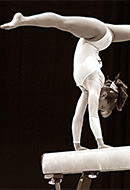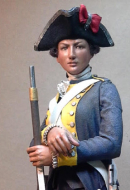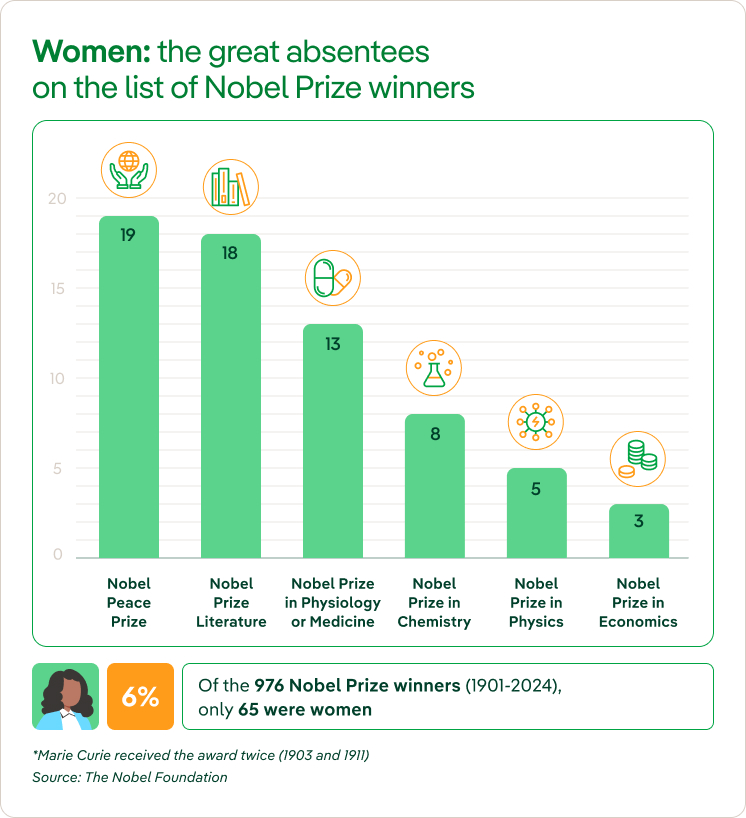The first women to...
The role of women in history: Pioneering figures in a man’s world
Historically, men have dominated the world, and in that context breaking down barriers and shattering the glass ceiling has been far from easy for women. Even so, some women confronted the stereotypes and broke through the barriers, excelling in their fields and, crucially, paving the way for others. Here are just a few of these female trailblazers and their achievements.

For centuries, history has been both written by and centred around men. This biased narrative has contributed to the invisibility of women, who for generations faced major barriers in accessing knowledge, joining centres of power and receiving recognition equal to that of men. Many writers, such as the Brontë sisters and Mary Ann Evans (aka George Eliot), were even forced to publish under male pseudonyms.
This inequality continues to this day. For example, just 66 of the 958 Nobel Prize winners between 1901 and 2024 – around 6% – have been women. Progress has been made, especially over the last century, as women have secured greater rights and equal opportunities have gradually become a shared goal. That progress has been possible thanks to pioneering women who defied convention. Here are some of those female icons who have helped make history.
Ada Lovelace (1815-1852), the first woman programmer
"Is thy face like thy mother’s, my fair child! Ada! Sole daughter of my house and heart?" These words were written for Ada Lovelace by her father, the English poet Lord Byron. He died in the Greek War of Independence when Ada was only eight and never witnessed her remarkable legacy: she is widely recognised as the world’s first computer programmer.
Lovelace, who was born in London in 1815, was a visionary. In 1843, she published a paper in the journal Scientific Memoirs titled “Sketch of the Analytical Engine Invented by Charles Babbage”, which included what is now considered the first algorithm intended for a machine. Her insight went beyond numbers – she predicted computers would one day process images, music and text. However, publishing under her initials, A.A.L., her contributions were largely dismissed by her male peers. She died at 36 after a long illness, but her legacy lives on: the U.S. Department of Defense named its first programming language ADA in her honour.
"Imagination is the Discovering Faculty, pre-eminently. It is that which penetrates into the unseen worlds around us, the worlds of Science"
Ada Lovelace (1815-1852)
Bertha von Suttner (1843–1914), the first woman to win the Nobel Peace Prize
For Bertha von Suttner, peace went hand-in-hand with happiness. Born in Prague in 1843, she was the daughter of a field marshal in the Austro-Hungarian Empire, and is regarded as the first female pacifist in history. Her tireless efforts to end armed conflict saw her become the first woman to win the Nobel Peace Prize, in 1905, making her only the second woman to win any Nobel prize after Marie Curie in 1903.
In 1877, von Suttner – a multilingual, well-travelled and cultured woman – began working as a journalist under the pseudonym B. Oulet. Her commitment to peace deepened after she covered the Russo-Turkish War (1877-1878). In 1889, she published Lay Down Your Arms, a seminal anti-war novel that became a cornerstone of the international peace movement. The Czech-Austrian pacifist campaigned for peace until her death in 1914, not long before the outbreak of the First World War, a conflict she had long warned against.
"One of the eternal truths is that happiness is created and developed in peace, and one of the eternal rights is the individual’s right to live"
Bertha Von Suttner (1843-1914)
Charlotte Cooper (1870–1966), the first woman to win Olympic gold
Picture a woman wearing a dress that runs down to her ankles and running across the grass courts of the All England Club in 1895, racket in hand. It was a striking sight at the time. That woman was Charlotte Cooper, who won her first Wimbledon title at the age of 25 that same year. She would go on to win four more: in 1896, 1898, 1901 and 1908, as well as seven All England mixed-doubles titles. Her Wimbledon win in 1908 set a record: she is still the oldest woman to have achieved that feat, being 37 years old at the time.
But the British sportswoman’s greatest legacy lies beyond Wimbledon. At the 1900 Paris Olympics – the first to include female competitors – she became the first woman to win a gold medal in an individual event, defeating French opponent Hélène Prévost 6-1, 7-5 in the singles final, and becoming the first female Olympic tennis champion. She also took gold in mixed doubles alongside Reginald Doherty. Remarkably, these achievements came after “Chattie”, as she was known, had lost her hearing in 1896 due to an infection.
Valentina Tereshkova (1937- ), the first woman in space
On 16 June 1963, amid the Cold War space race, Valentina Tereshkova became the first woman to travel into space. Aboard Vostok 6, the then-26-year-old spent 70 hours and 50 minutes orbiting the Earth a total of 48 times – completely alone.
Tereshkova had no formal astronaut training; she was chosen by the Soviet government thanks to her skill as a civilian parachutist. Her mission was difficult, and she suffered from near-constant nausea and physical discomfort, but she kept a detailed log and took valuable photographs. Upon her return, the Soviet Union celebrated her as a symbol of gender equality. She remains the only woman to have flown solo in space, as well as the youngest woman to have flown in space under the international definition of 100 kilometres of altitude.
No tenía formación previa como astronauta: fue seleccionada por sus habilidades como paracaidista civil. La misión fue difícil y sufrió náuseas y malestar físico casi constantes, pero llevó un registro detallado y tomó valiosas fotografías. A su regreso, la Unión Soviética la celebró como símbolo de igualdad de género. Sigue siendo la única mujer que ha volado sola al espacio y la más joven en hacerlo según la definición internacional (más de 100 km de altitud).
"Once you’ve been in space, you appreciate how small and fragile the Earth is"
Valentina Tereshkova (1937-)
Kathryn Bigelow (1951- ), the first woman to win an Oscar for Best Director
At the 2010 Academy Awards, the clear favourite to take the top prizes was James Cameron’s Avatar. But when Barbra Streisand stepped up to reveal the winner of Best Director, she hinted at history being made: “The time has come…” Moments later, Kathryn Bigelow was announced the winner, becoming the first woman ever to receive the honour.
Bigelow, who had once been married to Cameron, also won Best Picture that night for The Hurt Locker, a gripping portrayal of bomb disposal soldiers serving in the Iraq War. Throughout her career, she has challenged expectations, directing action films such as Blue Steel and Point Break, and science fiction movie Strange Days – genres traditionally dominated by male directors. She later tackled the story of the manhunt for Osama bin Laden in Zero Dark Thirty, which earned further Oscar nominations at the 2013 Academy Awards, but eventually only took a statue for Best Sound Editing.
"If there's specific resistance to women making movies, I just choose to ignore that as an obstacle"
Kathryn Bigelow (1951-)
Ketanji Brown Jackson (1970- ), the first Black woman to serve on the US Supreme Court
Ketanji Brown Jackson made history in 2022 when she became the first Black woman to serve on the United States Supreme Court. Her appointment – which came after she was nominated by then-US President Joe Biden – marked a milestone in the ongoing effort to diversify one of the most powerful institutions in American democracy.
With a distinguished legal career spanning roles as a public defender, federal judge and vice chair of the U.S. Sentencing Commission, Jackson brought a unique breadth of experience and a deep commitment to justice to the nation’s highest court. Ketanji Brown Jackson’s historic appointment is not only a legal milestone but also a cultural one. She serves as a powerful symbol of progress and representation, inspiring generations of young people – particularly women and people of colour – to see themselves in positions of leadership. Her presence on the Supreme Court signals a broader shift towards inclusion and balance in a system long dominated by a narrow demographic, reinforcing the importance of diverse voices in shaping the law and protecting democracy.
"In my family, it took just one generation to go from segregation to the Supreme Court of the United States. We have come a long way toward perfecting our union"
Ketanji Brown Jackson
Women have had to fight long and hard for recognition, equality and the opportunity to lead. Thanks to the efforts of these pioneers – and many others – the path is now clearer for future generations.

Women at the Olympic Games
Women's Empowerment and Achievements in Olympic History

Paving the way: Equality through sport
Paving the way to equality through sport

Women soldiers
Ready for battle

Women at Iberdrola Group
Acting for effective gender equality

Women's development in STEM areas
Promoting scientific vocations among girls and young women






